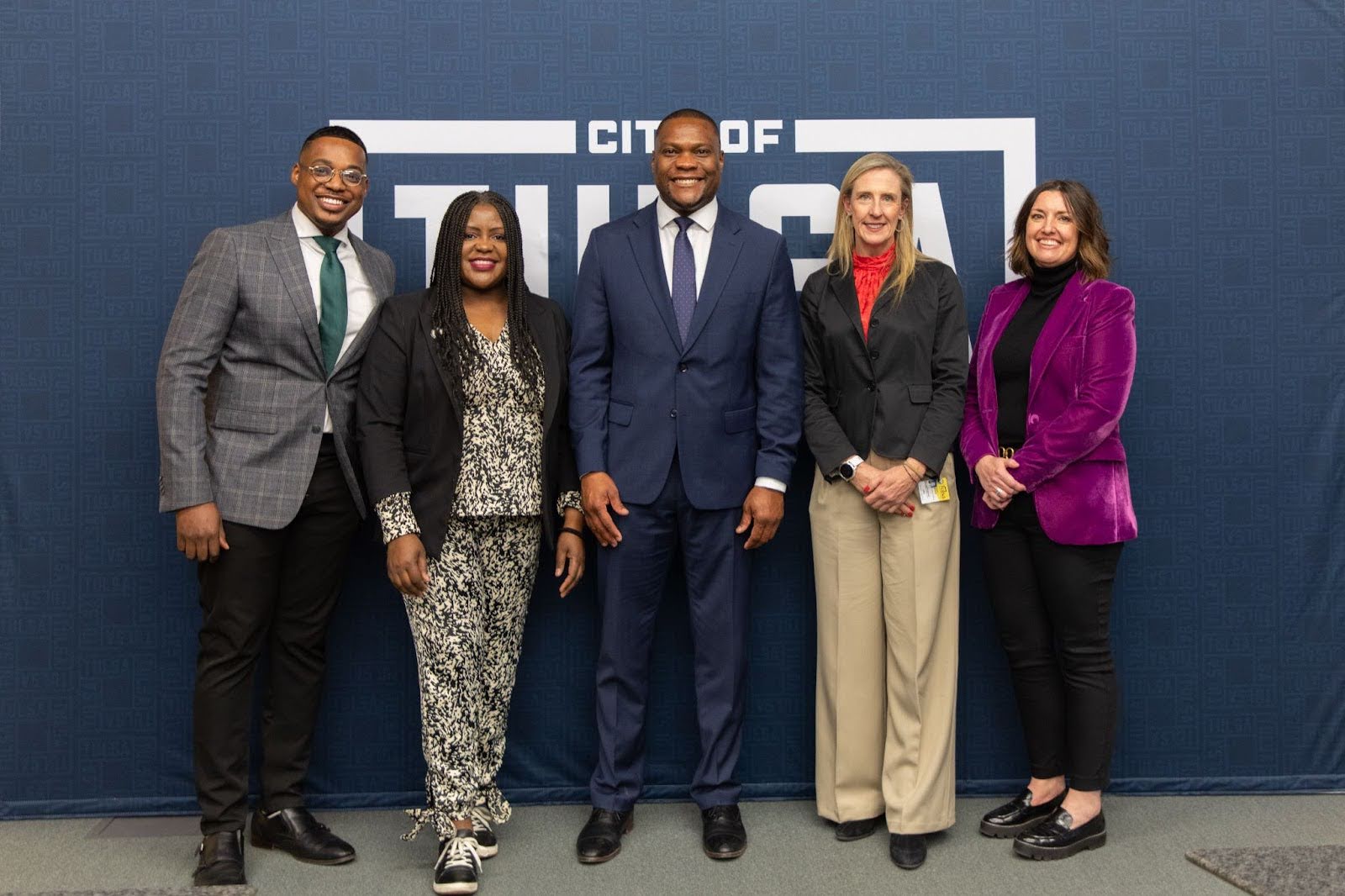As we celebrate Black History Month, we don’t just look back; we look forward. Two months ago, Monroe Nichols took office as Tulsa’s first Black mayor, a moment that felt like a defining shift in our city’s story. His leadership is more than historic; it tells young Black boys in Tulsa that they belong, that they matter, and that they can lead.
I still remember election night, standing with my wife and daughter in a room filled with joy, pride, and possibility. When Mayor-elect Nichols took the stage, I saw proof of what so many of us have always known: leadership in Tulsa should reflect the people who built this city. That feeling only deepened in December when I stood beside him to announce the Tulsa Community-Based Violence Intervention (TCVI) initiative. Seeing a Black mayor take the lead on such a critical issue was more than symbolic; it was necessary. This work, ensuring the safety and success of our young men, is personal for those of us who know what it means to grow up Black in Tulsa.
A little over a century ago, the Tulsa Race Massacre destroyed Black Wall Street, erasing generations of Black wealth and opportunity. Its impact lingers, shaping disparities in education, economic mobility, and political representation. When I was growing up, certain parts of Tulsa didn’t feel like they were meant for me. But watching Mayor Nichols take office and working alongside his administration to create change, those invisible lines are shifting.
As a student at Tulsa Central High School, I once dreamt of becoming the city’s first Black mayor. At the time, that goal felt distant. But to see it happen now proves that barriers we once thought were unbreakable are falling. This isn’t just about one man; it’s about expanding what is possible for Tulsa’s Black community.
I think about the young men the My Brother’s Keeper Tulsa team works with. Many face the weight of systemic inequities such as poverty, racial disparities, and limited access to opportunity. They live in a city where, statistically, Black boys are more likely to struggle with literacy, face violence, or miss out on opportunities for gainful employment. But now, they see something different.
For them, Mayor Nichols isn’t just a politician; he is a mirror. He reflects their potential to lead, to dream, and to step into spaces once out of reach. Research shows that when young men of color have role models who look like them, they are more confident, more future-focused, and more likely to succeed. Marian Wright Edelman once said, “You can’t be what you can’t see.”
But this moment is bigger than symbolism. Representation alone doesn’t create change; action does. Mayor Nichols has spent years advocating for systemic progress, from expanding economic mobility for Tulsa’s families to amplifying youth voices through ImpactTulsa. His leadership is a call to action for all of us to do the work. Mayor Nichols’ example isn’t just inspiring, it’s transformational, and at My Brother’s Keeper Tulsa, we remain committed to ensuring that Black boys in this city don’t just survive. We want them to thrive.
To every young Black boy in Tulsa, let this be a reminder that you are not limited by history. You are empowered by it.
Monroe Nichols’ victory is not just his. It is ours. It is a love letter to our ancestors and a promise to our future. And as we celebrate Black History Month, let us not only honor the past, but let us keep making history.
Read this article and my interview with Ginnie Graham in Tulsa World

